Wouldn’t it be wonderful to create a relationship where your partner thinks, “I kind of want to be more spoiled”?.
Simply applying a bit of psychological strategy can set the stage for a natural sense of wanting to be spoiled.
By skillfully leveraging the Caligula Effect—where being told “No” only heightens the urge—and the human tendency to relieve the discomfort of cognitive dissonance, you can draw out that desire to be more pampered.
In this article, we’ll explore the specific methods and techniques in depth.
- How to leverage the Caligula Effect to encourage a desire to be spoiled
- The “I want to get closer” mindset driven by cognitive dissonance
- Why refusal can intensify the craving even more
- Easy-to-adopt communication tips for everyday life
Understanding the Psychology Behind “I Want to Be Spoiled”
To naturally make someone feel, “I want to be more spoiled by you,” it’s crucial to first grasp the hidden desires lurking in your partner’s subconscious.
In the realm of relationship psychology, people are often subconsciously drawn to both the “reassurance of being wanted” and the “impulse to do what’s forbidden.”
Striking a comfortable balance in your closeness while also drawing out these desires is key to fostering a long-lasting partnership.

Identifying Your Partner’s Inner Desires
Everyone has “wants” deep down that can’t be explained by logic alone.
For instance, it might be difficult to articulate things like “I wish you’d pay more attention to me” or “I want to feel needed.”
However, if you can pick up on these unspoken truths and subtly offer support or acceptance, you can instantly bring out your partner’s desire to be spoiled.
- Think about “What kind of daily stress might they be dealing with?”
- Consider “What surprises or forms of support would make them happy?”
- Create an environment where it’s natural for them to share “concerns that are hard to put into words”
By keeping these points in mind, it becomes easier to smoothly pick up on your partner’s desires.
Even just showing that you’re willing to be there for them can provide a huge sense of security.
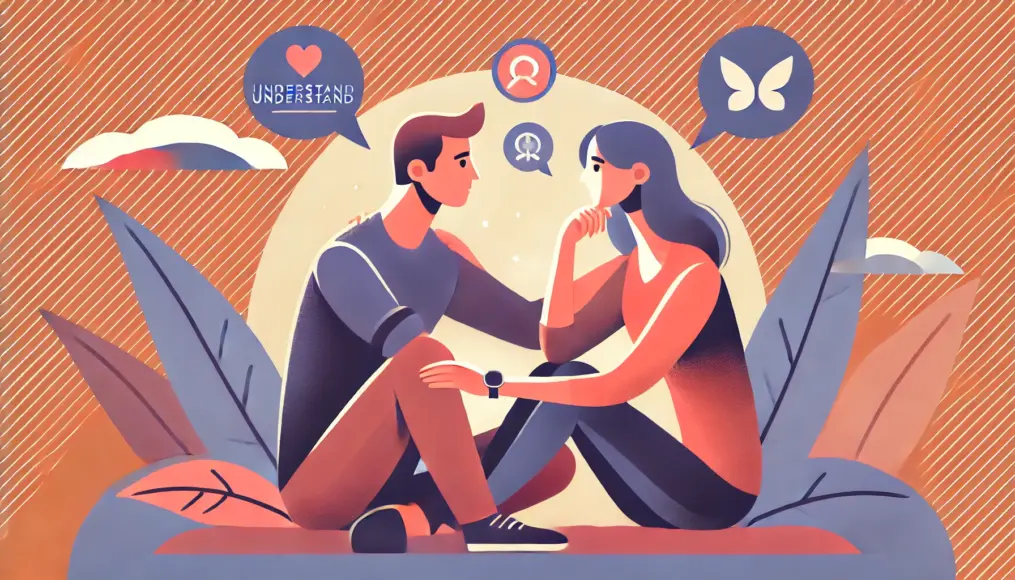
The Heart-Racing Effect of “Forbidden Commands”
When someone says things like “Don’t” or “Stop that,” there’s a psychological phenomenon—known as the Caligula Effect—where you want to do it even more.
By cleverly using this effect, you can subtly tease your partner through certain word choices, gradually stimulating their desire to be spoiled.
Keep in mind that overdoing it can backfire, so treat it as a mild “performance” rather than going all out.
- Say “You can’t hug me right now…” to purposely set a restriction
- Tell them “Wait just a bit longer,” creating a slight sense of anticipation
- Pay close attention to how they react as you proceed
When you skillfully manage your distance and use words like “don’t” to spark excitement, your partner will naturally start thinking, “I really do want to be spoiled more!”
By putting a bit of thought into your choice of words and the overall atmosphere, you can further enhance that desire to be pampered.

Using Loss Aversion as an Approach
To make someone think, “I want to be spoiled by you,” it’s not just about appearing attractive; it’s also about cleverly stirring the worry of “maybe I’ll lose something important.”
People often feel stronger emotions toward potential losses than the joy of gaining something new.
By harnessing this psychology, you can make your presence feel like something they “absolutely don’t want to lose.”
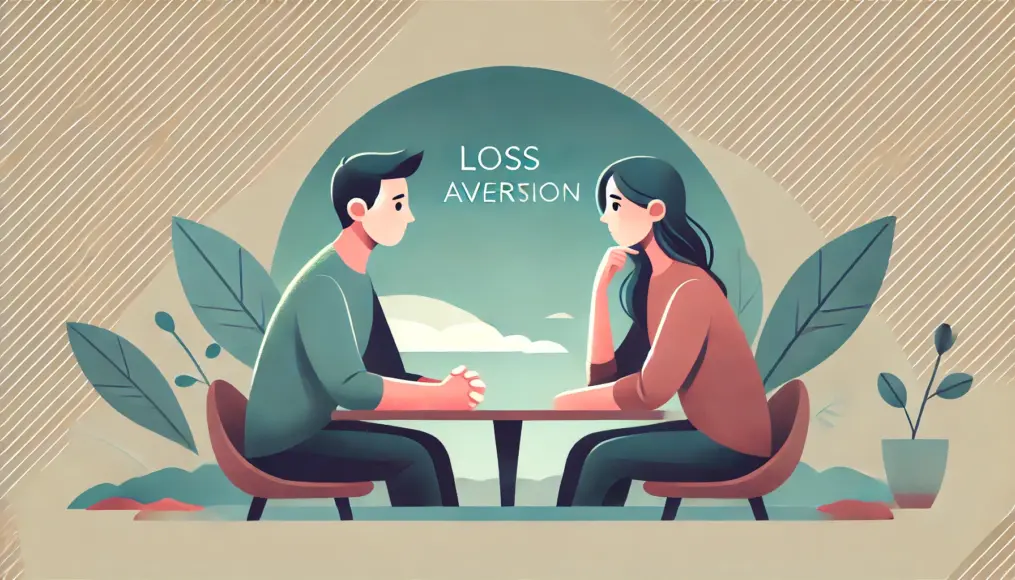
Sparking the Fear of Letting Go
To bring out loss aversion, it helps to subtly make your partner think, “If you weren’t around, I’d be missing out on some really great stuff.”
For instance, by casually highlighting the fun or security you bring, your partner will start thinking, “It’d be a waste to lose this.”
Of course, going overboard can backfire, so try to keep it natural.
- Show your partner a sense of security by saying things like, “I feel so relaxed when I’m with you.”
- Demonstrate a bit of dependability so they feel, “It’d be inconvenient without you.”
- Lightly joke about “What if I weren’t here?” to hint at the idea
With just a small gesture or remark, you can make them think, “It’d be a loss if they’re not here,” which in turn boosts their desire to be spoiled.
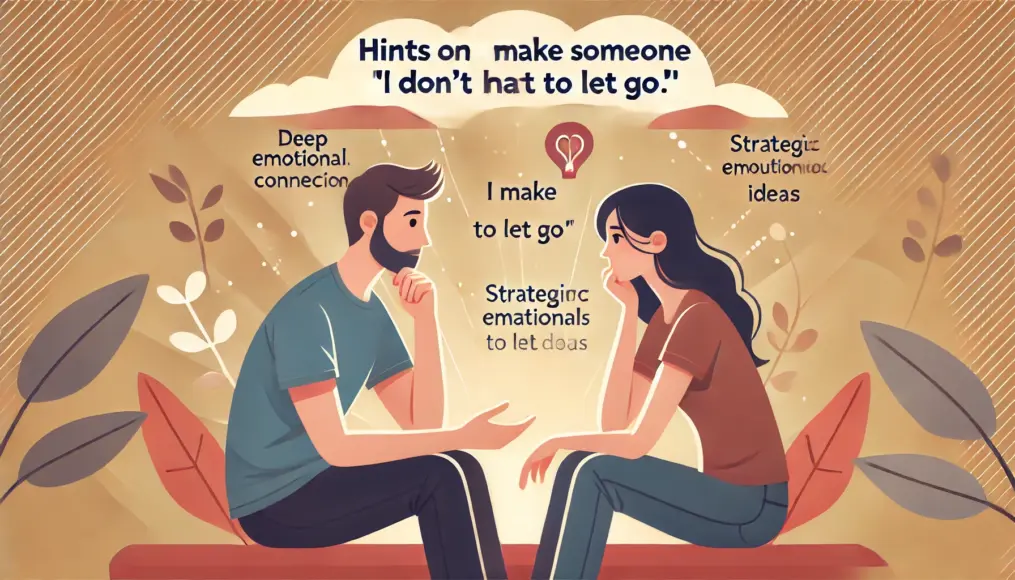
Adding a Bit of Risk for Extra Excitement
To amplify loss aversion even more, you can deliberately create “slightly uncertain situations.”
For instance, you might avoid revealing all of your plans to maintain a mysterious vibe, stirring up your partner’s curiosity or nervousness.
However, keep in mind that you should already have a solid base of trust—taking it too far can cause misunderstandings.
- Slightly obscure specific plans to create a sense of mystery
- Adjust how often you communicate to maintain just the right tension
- Show that you have your own life, enhancing your appeal
By introducing a bit of risk, your partner will strongly feel, “I don’t want to lose you,” and “I want more of your attention.”
As a result, it naturally heightens the desire to be spoiled.
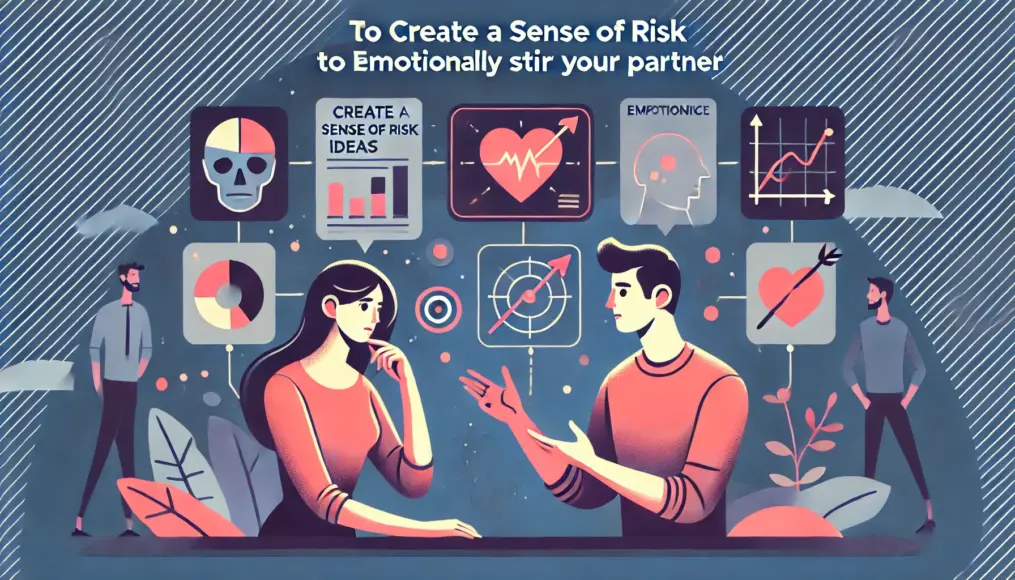
Techniques for Turning Cognitive Dissonance to Your Advantage
To make someone feel “I want to be more spoiled,” a key strategy is to intentionally create situations that induce cognitive dissonance.
When people sense a slight mental “mismatch,” they feel a strong desire to resolve it.
In other words, by deliberately giving your partner a subtle sense of unease, you become impossible to ignore.
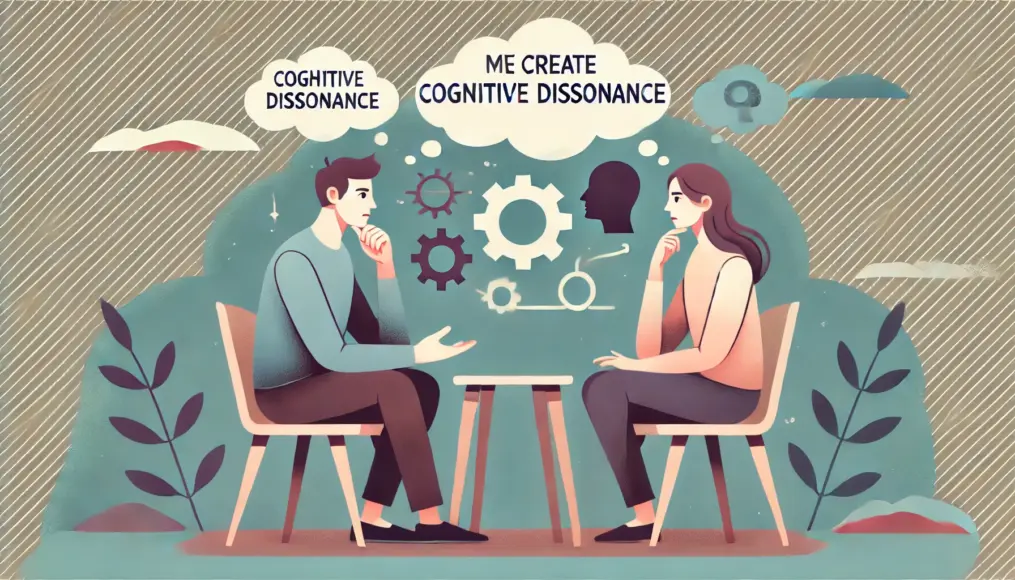
Creating a Subtle Gap in Perspective by Adjusting Distance
Maintaining an elusive distance—not too close yet not too far—can make your partner think, “I want to be closer.”
If you’re too available, they may feel fully satisfied too quickly, while staying too distant risks losing their interest.
Simply changing your schedule so you don’t always match up perfectly, or slightly adjusting how frequently you contact them, can produce a notable effect.
How to Leverage Small Feelings of Unease
Tiny changes in your behavior can leave your partner with a nagging sense of “Wait, something’s off,” prompting them to fill that gap.
For instance, ending a chat session earlier than expected triggers “I wanted to talk more,” causing a moment of cognitive dissonance.
- Delay your usual timing for sending messages
- Even if the meeting is short, interact with genuine warmth
- Don’t align your schedule perfectly with theirs
By making these small adjustments, your partner is more likely to think, “I just can’t stop wondering about them.”
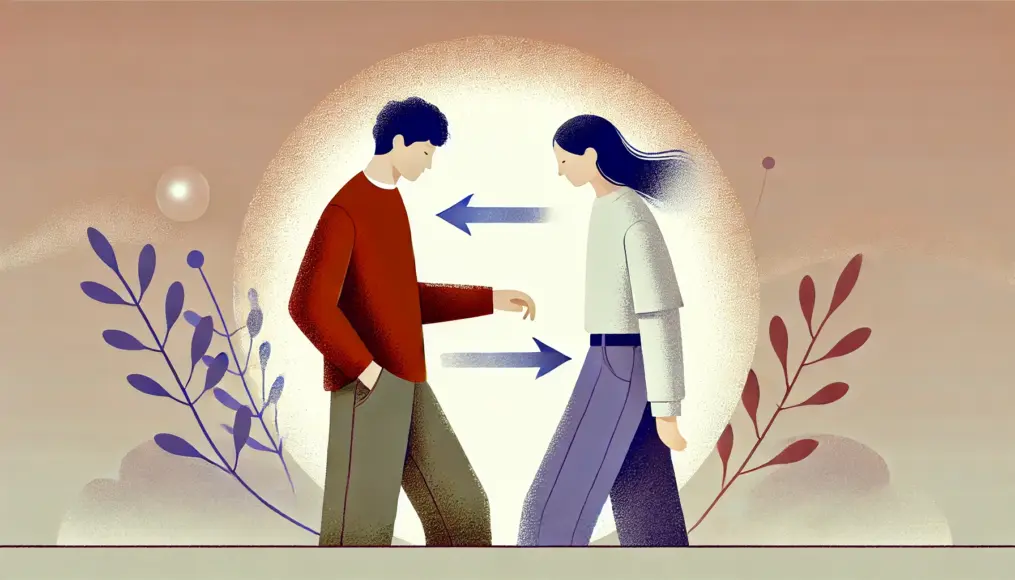
Using Small Gaps That People Feel Compelled to Fill
Another way to harness cognitive dissonance is to “intentionally create small gaps.”
Having a bit of an unresolved space makes your partner want to “fill that gap” or “better understand you,” thereby increasing their interest and attachment to you.
However, creating a gap that’s too large might drive them away, so it’s best to keep it within a manageable scope.
Give Them an Unanswered Question to Stir Their Curiosity
Deliberately leaving certain questions unanswered or topics unresolved can spark your partner’s desire to fill that gap.
An unnatural secret or unexplained mystery can backfire, but a slight hint of “There’s more I don’t know yet” can pique their curiosity.
- Pause conversations midway and pick them up next time
- Ask about their interest in your hobbies or areas of expertise
- Don’t reveal everything—keep some level of mystery
It’s precisely this bit of empty space that drives your partner’s urge to bridge the gap and get closer to you.
That’s the true advantage of turning cognitive dissonance to your favor.
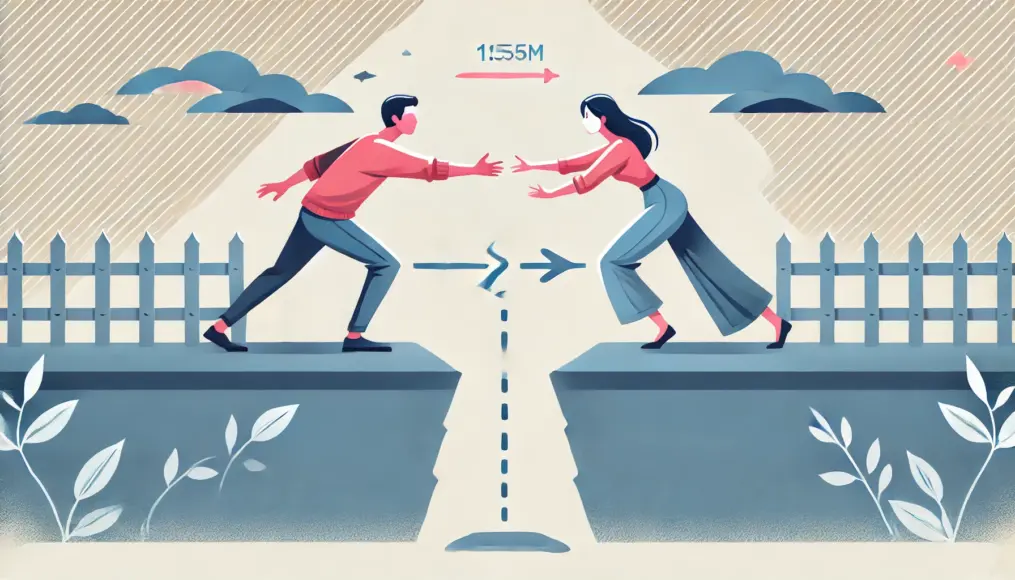
Nurturing a Relationship That Makes Your Partner Want to Be Spoiled
To maintain an atmosphere where both of you continue to feel like being spoiled over the long term, it’s essential to balance a sense of security with just the right amount of excitement.
If one person constantly bears all the burdens, frustrations and stress can build up—something you definitely want to avoid.
Also, by emphasizing future-focused communication, you can strengthen your bond even more.

A Lasting Sense of Security Combined with a Touch of Spice
The longer you’re together, the more important it becomes to balance feelings of comfort with a little bit of thrill.
If one person is always the one giving, or if there’s no stimulation at all, things can start to feel lacking at some point.
That’s why weaving small surprises or changes into your daily routine is so powerful—it brings a fresh spark to a reliable sense of security.
Tips for Cultivating Security and Excitement Simultaneously
Specific examples might include offering comforting words to help your partner relax, occasionally giving yourselves some space, or surprising them with an unexpected gift.
These little shifts act as a “spice” that preserves the desire to be spoiled while keeping your relationship feeling new.
- Plan small surprises on a regular basis
- Create an environment where both of you can truly unwind
- Occasionally do separate activities to add some invigorating distance
Your partner only truly appreciates the excitement because they feel safe and at ease in the relationship.
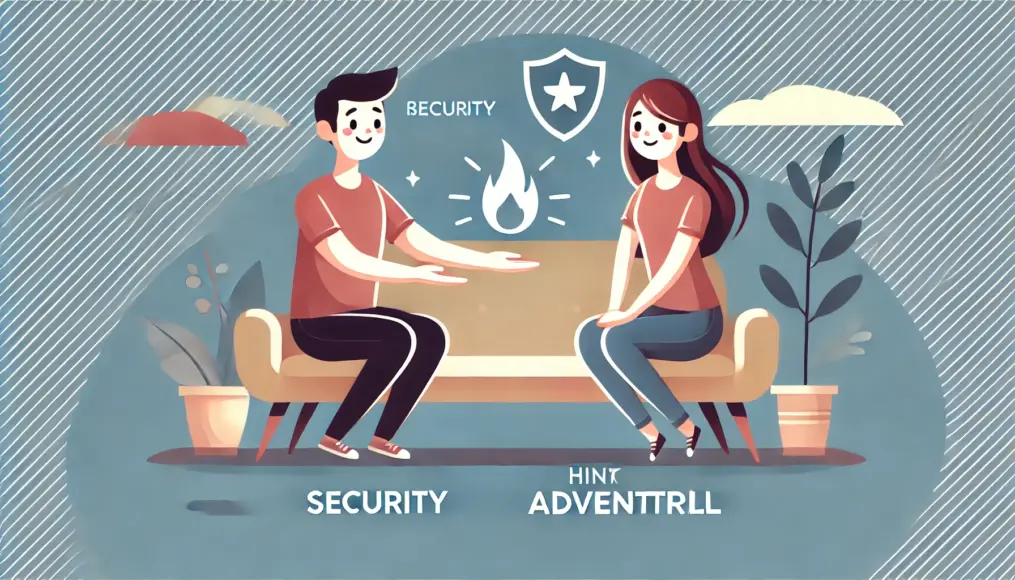
Conversation Techniques That Spark Imagining the Future Together
You don’t want the feeling of “I want to be spoiled” to be merely a fleeting whim, right?
If you practice conversations that make both of you want to stay together for a long time, the desire to be spoiled naturally lasts longer.
Sharing dreams or plans for the future helps both partners truly feel they’re heading in the same direction.
Points to Keep in Mind When Talking About the Future
It’s crucial to actively listen to your partner’s perspective while also sharing your own vision.
If you’re the only one talking about the future, your partner may feel left behind or disconnected, so try to keep the discussion balanced.
- Rather than focusing on a highly detailed plan, talk about the “shared dreams” you’d like to achieve together
- Accept your partner’s dreams and ideals in a positive light
- Set aside time to get excited about your life a few years down the road
By having these uplifting discussions often, feelings like “I want to be more spoiled” and “I want to stay with this person” will naturally grow stronger.
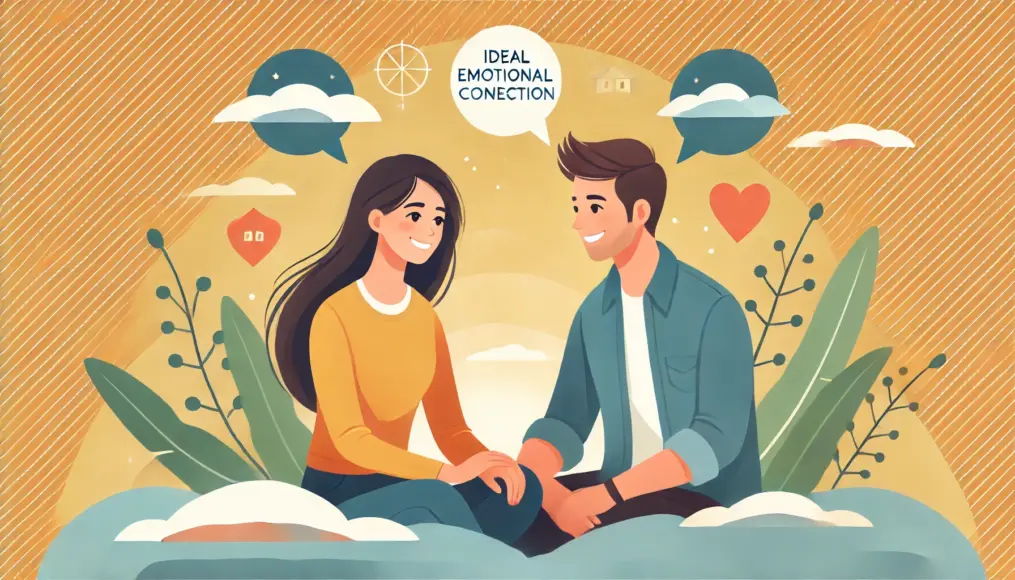
summary
In this article, we focused on psychological approaches to make someone think, “I want to be spoiled by you more.”
By leveraging the Caligula Effect, which makes forbidden things more tempting, loss aversion that heightens anxiety, and cognitive dissonance created by subtle mismatches, you can take those first steps to dramatically close the distance with your partner through just a few clever tactics.
- Applying the Caligula Effect, where “being refused only fuels the flame”
- Employing loss aversion to make them think, “I can’t afford to let you go”
- Crafting an exquisite gap or distance that triggers cognitive dissonance
- Understanding the importance of balancing security and a little spice
- Sharing a vision of the future to keep that “I want to be spoiled” feeling going
Feel free to give these points a try at least once.
If you have any thoughts or questions after experimenting with them, please share in the comments!

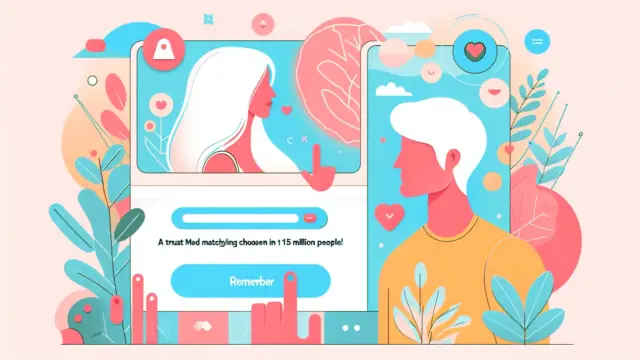

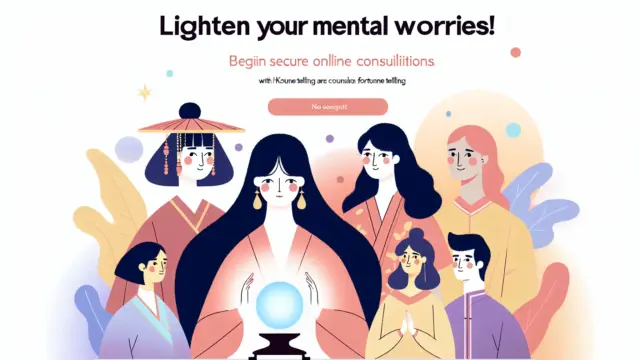




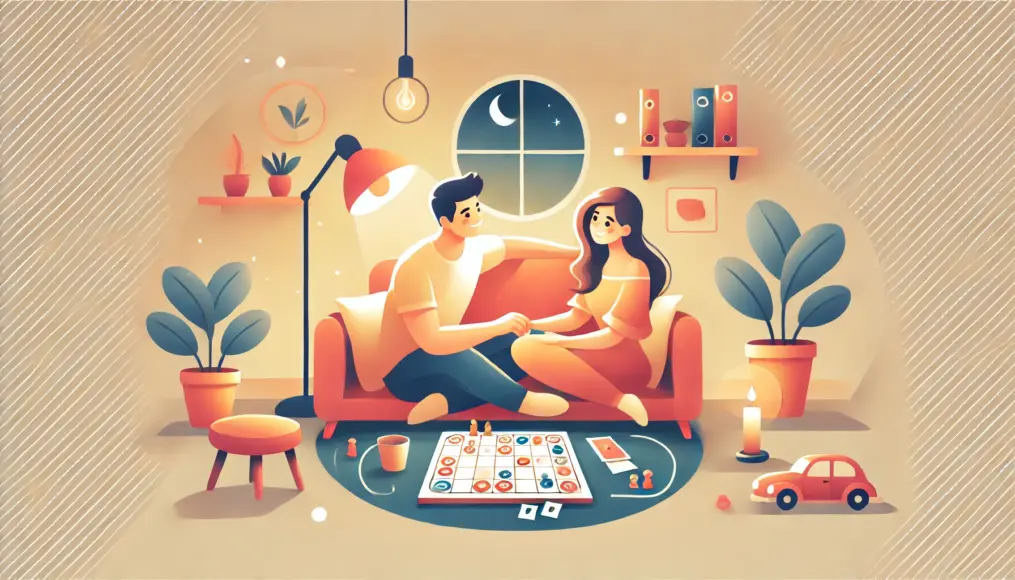
Comment